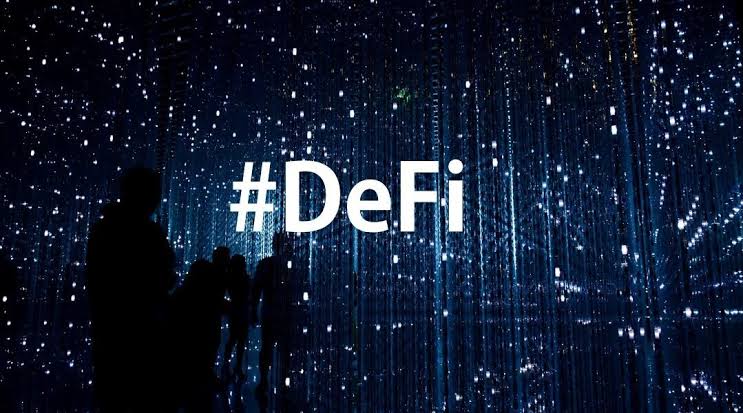The world of finance is undergoing a radical transformation, and at the heart of this revolution lies the incredible innovation of Decentralized Finance (DeFi). DeFi represents a fundamental shift from traditional financial systems to a decentralized, blockchain-based ecosystem that provides all the crypto tools you may need to start an online investment. Therefore, it’s essential to explore the predictions and trends shaping the future of DeFi in the coming years.
The Future of DeFi: Predictions and Trends for the Coming Years
Decentralized Finance, or DeFi, has been one of the most exciting and transformative developments in finance in recent years. Since its inception, DeFi has disrupted traditional financial systems and opened up a world of possibilities for users around the globe.
Below are some of the most prominent changes brought about by DeFi:
1.) Mass Adoption
DeFi’s journey has only just begun, and we’ll likely see a significant increase in mass adoption in the coming years. As more people become familiar with blockchain technology and cryptocurrencies, they’ll also discover the benefits of decentralized finance. However, it will lead to a surge in DeFi users, making it an integral part of the global financial system.
2.) Interoperability
Currently, many DeFi projects operate on separate blockchains, limiting their interoperability. In the future, we expect to see more cross-chain solutions that enable different DeFi protocols to work seamlessly together. However, the efficiency and usability of the DeFi ecosystem will significantly improve as a result.
3.) Regulation
As DeFi grows, regulatory bodies worldwide will take a keen interest in its operations. We expect increased regulatory scrutiny, which may bring challenges and opportunities. More transparent regulations could legitimize the DeFi space, attracting institutional investors and traditional financial institutions.
4.) Security Improvements
One of the most significant challenges in DeFi has been security breaches and vulnerabilities. However, as the industry matures, we expect substantial improvements in security measures. DeFi projects will invest more in auditing and testing smart contracts, using advanced encryption techniques, and implementing decentralized identity solutions to safeguard users’ assets. Moreover, this will be critical in building trust and confidence among users and investors.
5.) Evolving Use Cases
While lending and borrowing have been the primary use cases for DeFi, we expect to see an expansion of use cases. DeFi will likely branch into insurance, identity verification, and supply chain management. These new applications will further demonstrate the versatility of blockchain technology.
6.) Cross-Platform Integration
Traditional financial institutions may begin integrating DeFi services into their existing platforms. This could allow customers to access DeFi products through their banks or investment firms, making it more accessible to a broader audience.
7.) DeFi on Mobile
With the increasing use of smartphones globally, DeFi crypto tools and applications will become more mobile-friendly. Mobile apps will provide users with convenient access to their DeFi portfolios, enabling them to manage their assets on the go with mobile crypto tools. Users of Android and Apple devices will enjoy the long-awaited opportunity of operating financial accounts on mobile phones.
8.) Stablecoins Dominance
Stablecoins have become the backbone of many DeFi projects, providing a stable store of value in a volatile crypto market. In the coming years, stablecoins will play an even more significant role in DeFi, potentially challenging traditional fiat currencies.
9.) DeFi Derivatives
The development of DeFi derivatives markets will offer users new opportunities for trading and risk management. This option will attract more sophisticated investors to the DeFi space.
10.) Improved User Experience
User experience in DeFi has been a point of contention, with complex interfaces and high gas fees. As DeFi evolves, developers will focus on improving the user experience. User-friendly interfaces, better educational resources, and enhanced customer support will make DeFi more accessible to non-technical users.
11.) Sustainability and Environmental Concerns
With the growing environmental concerns related to blockchain’s energy consumption, we can expect DeFi projects to explore more sustainable consensus mechanisms and eco-friendly practices. DeFi projects will explore eco-friendly alternatives and solutions, such as transitioning to proof-of-stake (PoS) consensus mechanisms.
12.) Decentralized Autonomous Organizations (DAOs)
DAOs are community-driven organizations governed by smart contracts. They enable decentralized decision-making and management of funds. In the future, we expect to see more DAOs emerging in DeFi, shaping the direction of projects and reducing centralized control.
13.) Improved Oracles
Oracles provide external data to smart contracts, and their reliability is crucial for DeFi applications. Future developments in oracles will enhance accuracy and security, reducing the risk of manipulation and price feed inaccuracies.
14.) Enhanced Privacy Solutions
Privacy is a vital aspect of financial transactions. DeFi projects will work on incorporating better privacy solutions into DeFi crypto tools while complying with regulatory requirements. The anonymity people have sought for many years will be possible using DeFi systems. Privacy-focused DeFi platforms and protocols will likely gain traction. Those who wish to protect their financial information from the reach of governmental organizations will be able to achieve their goals using these Bitcoin systems.
Summary
The future is filled with promise and potential, but it also comes with challenges. As the industry evolves, we can anticipate enhanced security, regulatory developments, cross-chain integration, increased institutional involvement, and improved user experiences. Moreover, decentralized autonomous organizations, improved oracles, sustainability initiatives, and privacy crypto tool solutions will play pivotal roles in shaping the DeFi landscape.
The coming years will undoubtedly be transformative for DeFi, with innovation and adaptation paving the way for a more inclusive and accessible financial ecosystem. However, it’s essential to remember that DeFi’s rapid evolution also carries risks, and carefully considering these trends will be crucial for developers and users in navigating this exciting new financial frontier. Consequently, DeFi is not just the future of finance; it’s the future of financial empowerment, innovation, and accessibility for people worldwide.
This is a sponsored post







